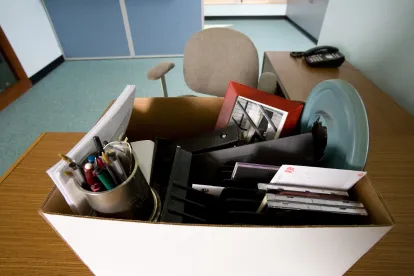California is well known for its broad restrictions relating to non-competition clauses applicable to workers. After a recent decision by the Federal Circuit, such notoriety may extend to the patent realm. Employers should beware to not fall into this employment agreement trap.
In what it characterized as an issue not previously addressed by California’s appellate courts, in Whitewater West Industries v. Alleshouse, No. 2019-1852 (Fed. Cir. Nov. 19, 2020), the Court of Appeals for the Federal Circuit held that that California state law not only restricts non-competition provisions in employment agreements, but also prohibits certain provisions related to invention assignment. Specifically, employment agreement provisions requiring the assignment of inventions conceived by (former) workers post-employment, without use of the employer’s confidential information, are not permitted in California.
The Whitewater Case
Mr. Alleshouse was an employee of Wave Loch, Inc., Whitewater’s predecessor-in-interest, for almost five years before resigning in August 2012. While employed by Wave Loch, his job responsibilities included research, design, and development of new water park attractions. During the course of his employment, Mr. Alleshouse had signed an employment agreement including the following assignment of inventions provision:
Assignment: In consideration of compensation paid by Company, Employee agrees that all right, title and interest in all inventions, improvements, developments, trade-secret, copyrightable or patentable material that Employee conceives or hereafter may make or conceive, whether solely or jointly with others:
(a) with the use of Company’s time, materials, or facilities; or
(b) resulting from or suggested by Employee’s work for Company; or
(c) in any way connected to any subject matter within the existing or contemplated business of Company
shall automatically be deemed to become the property of Company as soon as made or conceived, and Employee agrees to assign to Company, its successors, assigns, or nominees, all of Employee’s rights and interests in said inventions, improvements, and developments in all countries worldwide. Employee’s obligation to assign the rights to such inventions shall survive the discontinuance or termination of this Agreement for any reason.
Following his resignation, Mr. Alleshouse conceived of several new inventions related to water park attractions that eventually resulted in three issued US patents. It was undisputed that Mr. Alleshouse conceived of the inventions after he left Wave Loch and that he did not use any trade secret or other confidential information of Wave Loch in creating these inventions.
In 2017, Whitewater brought suit to enforce the employment agreement and require Mr. Alleshouse’s current company to assign the patents to Whitewater. Among other defenses, Mr. Alleshouse asserted that the assignment provision of the employment agreement was invalid under California law. The Southern District of California initially ruled in favor of Whitewater but the Federal Circuit reversed, finding the provision invalid under California Business and Professions Code § 16600.
Section 16600 states:
Except as provided in this chapter, every contract by which anyone is restrained from engaging in a lawful profession, trade, or business of any kind is to that extent void.
The Federal Circuit found that the assignment provision restrained Mr. Alleshouse’s future employment because it was unlimited in time and geography, and applied to any invention that was merely “suggested by” his work for Wave Loch or “in any way connected to any subject matter within the existing or contemplated business” of Wave Loch.
Based on Whitewater’s application of the open-ended language in the assignment provision, a wide range of inventions Mr. Alleshouse made after resigning would have to be assigned to Whitewater (as the successor of Wave Loch), thus limiting his utility to any future employer and potentially subjecting that employer to liability for patent infringement for using Mr. Alleshouse’s inventions.
Reviewing existing decisions of the California state courts, the District Courts in California, and the Ninth Circuit, the Federal Circuit found the assignment provision invalid under section 16600 because of how it would restrict Mr. Alleshouse’s future employment.
Lessons for Employers
As a result of Whitewater, employers with personnel in California need to take a fresh look when drafting assignment clauses for inclusion in their employment agreements. Under the Federal Circuit’s analysis, any assignment provision that extends to inventions conceived post-employment, beyond that necessary to protect proprietary information, is at risk of being invalidated.
However, employers still do have options for preserving their rights to inventions made by their employees, particularly those made using company resources and proprietary information. Employers should weigh the following three considerations.
First, California law allows for assignment provisions that apply to inventions conceived by current employees that relate to the employer’s business. Specifically, while California Labor Code § 2870(a) prohibits assignment provisions for inventions by current employees made on their own time, and not using the employer’s resources or trade secret information, it expressly excepts inventions that result from work performed by the employee for the employer, or that relate to the employer’s business or anticipated research and development. Furthermore, in order to guard against employees concealing inventions until they have left the employer, California Labor Code § 2871 allows disclosure provisions requiring employees to disclose, in confidence, all inventions made during their employment for review by the employer.
Second, while not expressly addressed in Whitewater given the facts of that case, assignment provisions directed to inventions developed or derived from an employer’s trade secret or proprietary information, even if conception is post-employment, still seem to be enforceable. Section 2870(a) refers to inventions employees developed “without using the employer’s . . . trade secret information,” thus acknowledging that such information is entitled to a different scope of protection. Out of an abundance of caution, a provision requiring assignment of post-employment inventions developed or derived from an employer’s trade secret or proprietary information might be better included as part of the non-disclosure and confidentiality obligations of the employment agreement. Such an arrangement may assist in making clear that it is intended to protect the employer’s confidential and proprietary business information, rather than to restrain the employee’s future employment prospects.
Third, and on a final note, Section 16600 generally cannot be avoided by including choice of law and venue provisions that specify another state in the employment agreement, as those provisions are generally not enforceable against employees located in California. Furthermore, while apparently not pursued by defendants in the Whitewater case, a clause that is void under Section 16600 may also violate California’s Unfair Practices Act, potentially leading to affirmative liability for the employer beyond merely having a contract provision voided. In other words, employers need to carefully consider whether Section 16600 applies to each employee who may work inside or outside of California, and how the employer’s physical location may impact that analysis.
In sum, the careful drafting of invention assignment provisions in employment agreements continues to be necessary to ensure that employers receive the benefits of the work of their employees while not running afoul of California law’s distaste for restrictive covenants. The decision in Whitewater is more than a cautionary tale, as employers can take a proactive approach now – before they are facing a legal problem – to strengthen their protection of their intellectual property.





 />i
/>i

